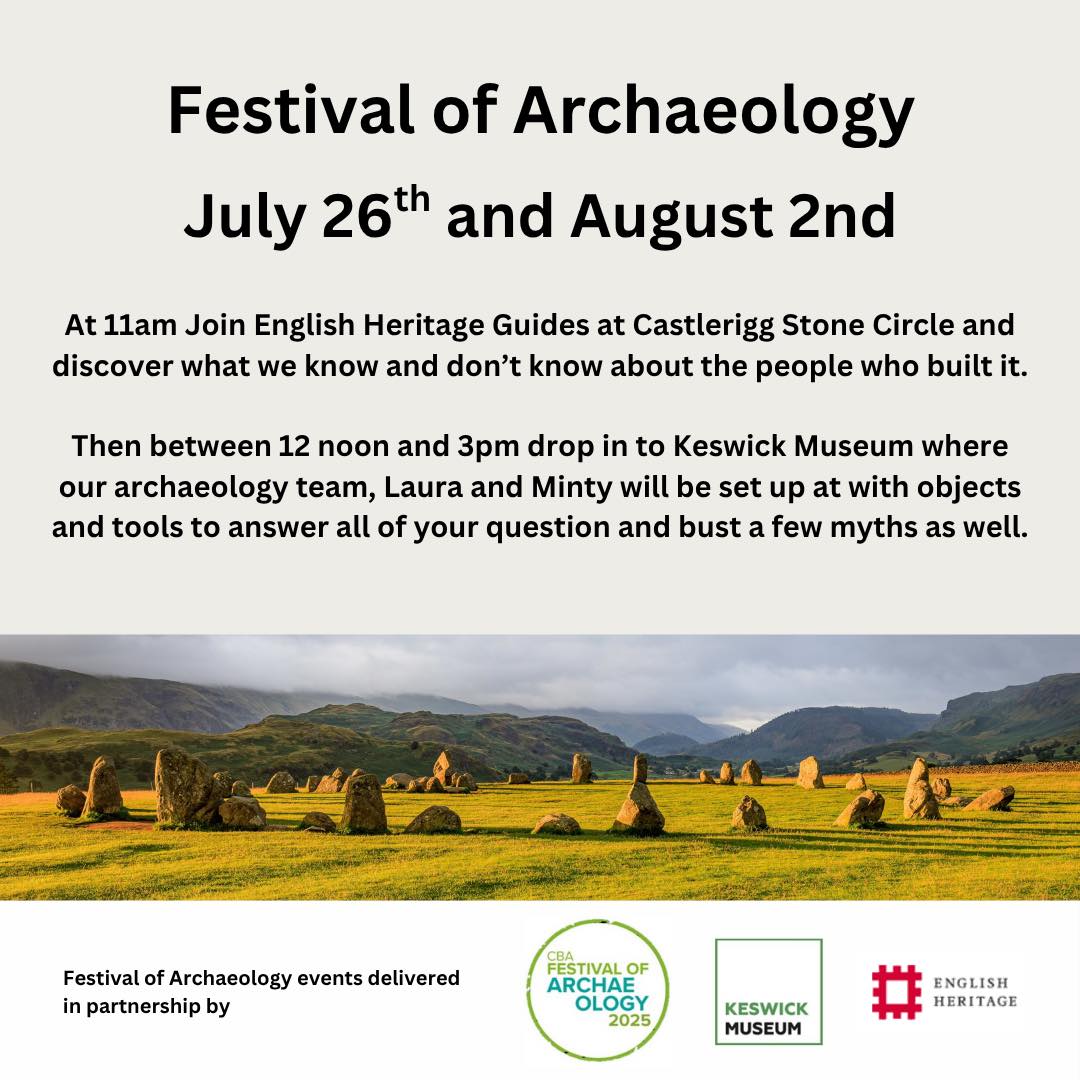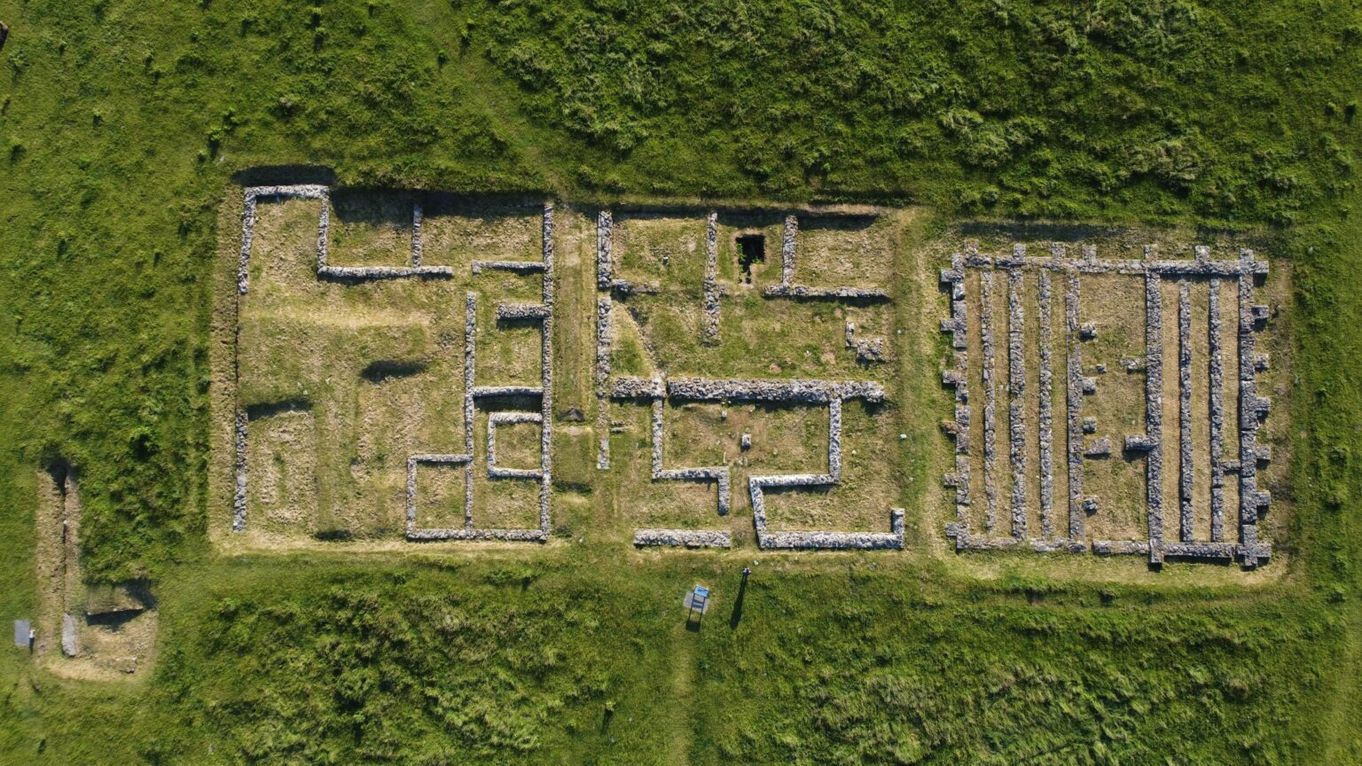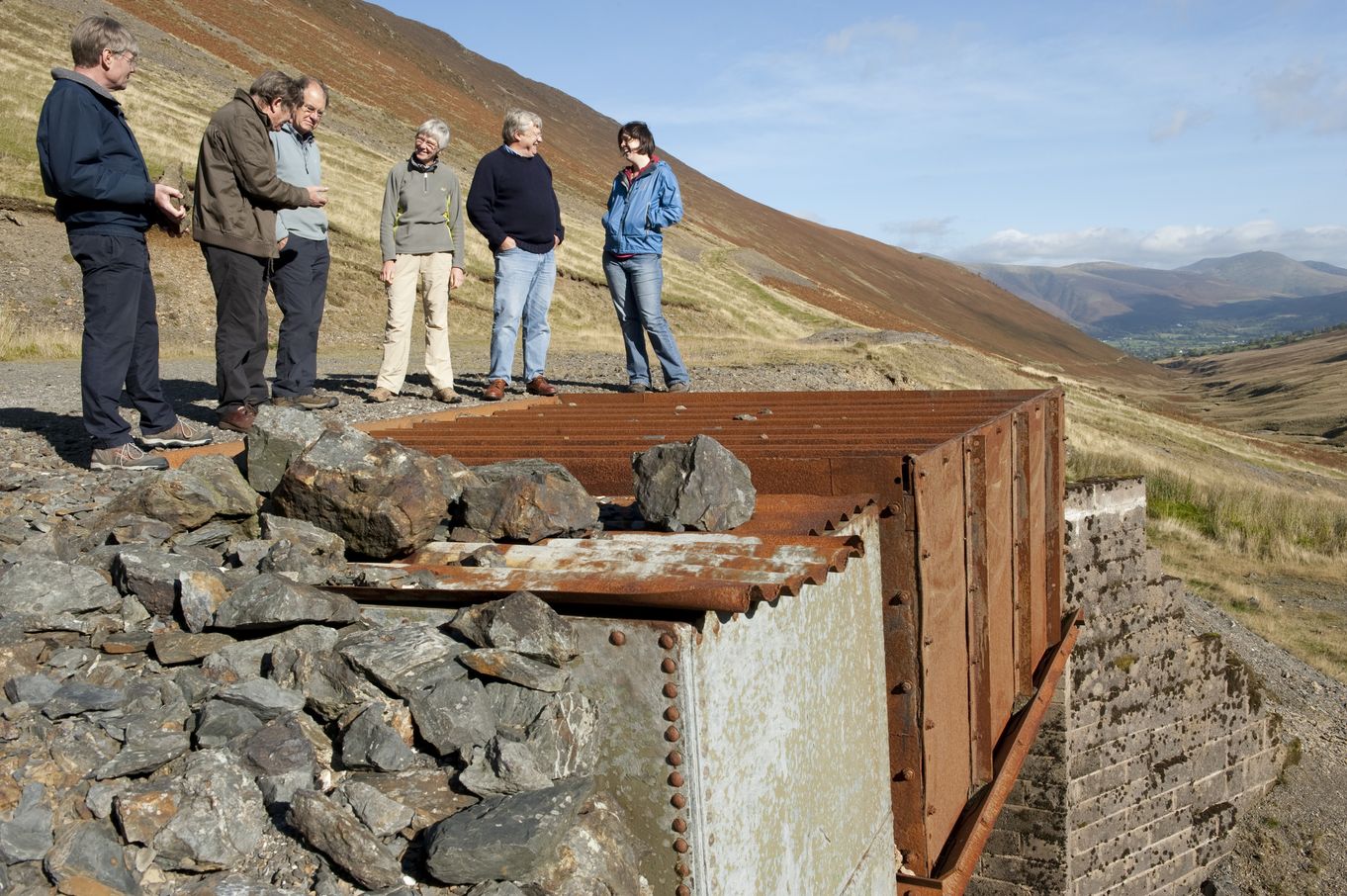Festival of Archaeology with The National Trust, English Heritage and the Keswick Museum
Celebrate the Festival of Archaeology with the National Trust, English Heritage and the Keswick Museum in the Lake District

Join for the Festival of Archaeology 2025
Keswick Museum & English Heritage
Join English Heritage guides to explore one of the most iconic prehistoric sites in Britain. Discover what we know, and what we don’t, about the people who built it.
Drop in and meet our archaeology team, Laura and Minty.
They’ll have fascinating objects, tools of the trade, and answers to all your archaeology questions, plus a few myths to bust along the way.
Family-friendly | No booking required | Just drop in

This summer, budding archaeologists are invited to celebrate the UK’s annual Festival of Archaeology at various National Trust places across the Lake District.
Organised by the Council of British Archaeology, this year’s festival will run from 19 July to 3 August and explores the theme of ‘Archaeology and Wellbeing’.
At Acorn Bank, visitors can drop in daily between 28 July and 3 August to see archaeology in action. People are invited to watch as staff, volunteers and archaeologist Chris Scott see if they can uncover what may remain of a lost formal garden.
At the beginning of the 20th century a formal garden, now lost, sat below the ha-ha at Acorn Bank. It was accessed by two flights of ornamental stone steps. The team hope to find some of the stonework remaining during an archaeological dig, to inform what happens next in this part of Acorn Bank’s beautiful garden. There is then potential to restore the stone steps as access to the original Low Terrace.
On Saturday 2 August, visitors can enjoy a rare opportunity to explore the processing mill at Force Crag Mine on a series of volunteer-led guided tours. Situated at the head of the Coledale Valley, this rusty ‘tin shed’ holds the most complete assemblage of metal ore mining machinery preserved in situ anywhere in England and is a tribute to human engineering and ingenuity.
Having closed in 1991, Force Crag was the last working mine in the Lake District and has a powerful story to tell about humanity’s impact on the planet. To make this event more inclusive, transport can be pre-booked for those who may have difficulty getting to the mine under their own steam.
The National Trust and The Armitt have teamed up to host an open day at Ambleside Roman Fort on Sunday 3 August. Connected with The Armitt’s 2025 exhibition 'A Battle of Ambleside', this event will be hosted at the fort and is an opportunity to get hands-on with history.
Visitors can immerse themselves in Roman history through handling displays, dress up and guided tours led by the Trust’s archaeologist. The site will be brought to life with Roman ballista and dance demonstrations, along with reenactments from the Trimontium Trust.
Faye Morrissey, Manager and Curator of The Armitt, comments:
‘It's great to be holding a collaborative event at Ambleside Roman Fort for the first time. There will be hands-on activities, demonstrations and dress up all available on the day, supplied by our other partners – Trimontium Trust, Cumbria Amenity Trust Mining History and Durham University. For many, the fort is unknown and not visible, but on Sunday 3 August, there will definitely be a Roman feel to Ambleside!’
Jessie Binns, Senior Programming and Partnerships Officer at the National Trust, says:
‘This year, we invite people to be part of the Festival of Archaeology, a celebration that brings history to life. But it isn’t just about uncovering the past, it’s about enriching the present. Whether you’re spending time in nature at a dig site, pausing to study an ancient object, or meeting with others at local events, archaeology provides a space to slow down and reconnect with the past, each other, and ourselves.’
Admission charges may apply for some events. Please check the National Trust or Council of British Archaeology websites for more details, Festival Council for British Archaeology

